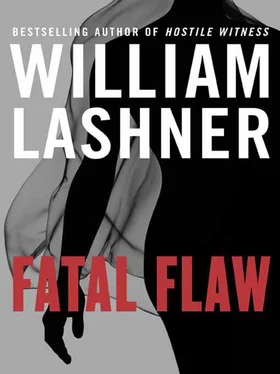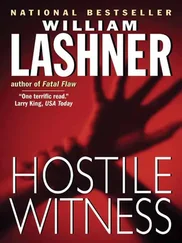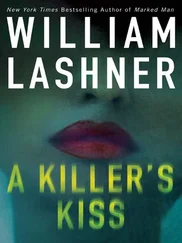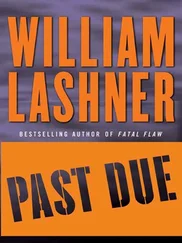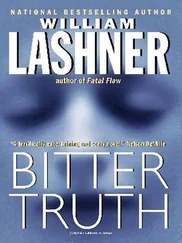After college I lost seven years trying hard not to be ordinary, chasing something, I never knew what, falling into a squalor I can’t anymore imagine. I grew sick of the carelessness, the drugs, the greasy food, the bad grammar. There had to be a better way. Had to be. I was living then on the outskirts of a college town, and some kids we were dealing to were talking about the LSATs, and I figured I was smarter than they were, so I signed up, too. It was a lark, but it wasn’t a lark, because underneath I knew what it was pointing to. And I did all right, better than the college kids. So when Pepito walked through my door, just walked right through it, wood crashing down around him, waving a sawed-off shotgun in the air, misusing adjectives as adverbs, I knew it was time to change everything.
Law school was hard. I didn’t take to it like you did, Victor, too many rules based on imprecise language, too many leaps of twisted logic, but that’s not what made it so hard. It was hard because it wasn’t just a few years of professional training for me. I was reinventing myself. I knew what I would be falling back into if I didn’t make it. I worked harder than I ever thought possible, kept my nose clean, changed my whole way of living. I saw some of our classmates right out of college hanging in the bars, trying to act cool, and I just shook my head. I knew cool, I nearly froze to death in the desert from cool. That’s why I liked you. Beside the fact you could explain things to me, you weren’t trying to be something other than you were, you weren’t cool. See, every day I was pretending to be something less than I was. I kept everything buttoned, everything tight and grim. I was going the other route one hundred percent. I was keeping my head low, because any day Pepito could burst again through my door.
I was tempted to go in with you after law school, Victor, it would have been fun, but the law for me was not about fun. It was about security, about money, about gaining some status starting from nothing. It was about leading a different life. At Dawson, Cricket and Peale, straight was the only way to play it. I put my head down and sucked up the hours, the workload, the bland social obligations. When the thing with Leila came along, I figured it had happened, the change, that I was someone shiny and new. And in no time there we were with the big house, the country club, the kids, the life. The goddamn life. I’m not claiming to be a victim here, none of this was done to me, the whole thing was my choosing, but even so, something was wrong. The clue was, I suppose, that after eight years I still wasn’t comfortable in a suit and tie. I hated my job, hated the work, hated the firm, yet my grandest ambition was to become partner. The schizophrenia of it was tearing me apart. Do you know the word “anhedonia?” I suffered it, I was plagued by it. After eight years I looked up and realized I was living in black and white.
It was in a hospital room. There had been a bad result to a simple surgery. The doctor had notified the insurance company, Red Book, and they had notified us. In my briefcase was a contract that I was to have the wife sign, a contract that would guarantee the patient’s medical care in exchange for an agreement to arbitrate any dispute over his prior care and a waiver of any claims for pain and suffering. Hey, bad things happen, and some bad things that happen are nobody’s fault. That was our motto there at Dawson, Cricket and Peale. For a while I sat alone in the darkened room with the patient. He had intravenous lines leading into his arms, he had a catheter leading from his prick, he had a respirator tube snaking down his throat. The bellows of the respirator rose and fell, over and over, like a torture machine. Allow me to introduce you to Juan Gonzalez.
Once he had been a handsome man, he had played minor league baseball, he had raised a family by the strength of his hands. Now I looked at him lying near lifeless in the bed, and in a way I envied him. For him, at least, it was over, the maneuvering, the arguing, the rushing here and there for results that meant nothing. That was how far I had fallen – I envied the man in the coma – when Mrs. Gonzalez walked into the room.
She was a nice lady, sweet and terrified, devoted to her husband, worried about his future, her ability to continue his care. Her insurance had a limit, it would run out, it would run out, and then what would she do? I commiserated. In my job I had become excellent at commiseration. I was wearing a dark suit, an overcoat, polished black shoes. I must have seemed the bearer of very bad tidings, but I was there to help, I told her. In any way I could.
There was an order to things. You couldn’t just presume, you couldn’t just go in waving dollar bills. You needed to follow the order of things. If you showed any eagerness, they would want a lawyer of their own, and once they found a lawyer of their own, it became a whole different game. I learned that from my clever father-in-law, Jonah Peale himself. So I moved in slowly.
“Are you happy with the room?” I asked. “Are you happy with the care, the nursing? Anything we can do to help in this most difficult time, we will do. Just ask. Please. Anything. You shouldn’t worry about the limit on your medical insurance, Mrs. Gonzalez. I will personally make sure that no transfer takes place until you are satisfied that his care in the new facility will be as good as the care here. We want to take care of you. How are things at home without Mr. Gonzalez’s salary? Are you managing? If you need anything, I want you to call me. There are people who can help. I’m on your side. Tell me what I can do to help. Anything. Anything.”
It was going well, so well that I opened the briefcase and took out the long piece of paper. It was always the crucial moment, the opening of the briefcase. You didn’t open the briefcase unless you felt the deal, and once it was open you didn’t leave the room until the deal was closed. The briefcase was open, the papers were out, Mrs. Gonzalez was on the verge of signing. Pushing her would have been as easy as pushing aside a curtain, I could feel it, but I didn’t push. That was not the way it was done. It had to be her choice, and she was choosing to sign. The pen was in her hand, and she was choosing to sign.
When a voice from outside the room said,”Stop.”
I turned to see a pair of bright crimson lips set upon a pale face, a flash of color so vivid it cut like a Technicolor knife through the gray scale of my world. They were smirking at me, those bright red lips, and yet I couldn’t look away, I couldn’t help myself from staring, soaking in the color. There was the body, too, of course, small, frail, even in the black suit, even with the briefcase and in the heels, but it was the crimson of the lips that caught me off guard, a flash of color so vivid it startled me.
“This is a private room,” I stammered, “and this is a private meeting.”
“Not anymore,” said the woman.
The lips widened, showing now teeth, white and even, and between the bright teeth the pink tip of her tongue. She was sticking her tongue out at me.
“Your daughter asked me to come, Mrs. Gonzalez,” she said. “I’m a lawyer.” When she said that she adjusted her serious, dark-framed glasses as if to emphasize the point. “Your daughter asked me to speak to you before you signed anything.” She looked at me. “It appears I’ve come just in time.”
I tried to get rid of her, get the meeting back on track, but in that flash of a moment it was over. The woman explained to Mrs. Gonzalez the consequences of the contract, and it was over. I put the paper back in the briefcase, snapped it shut. The closing of the briefcase. I stared impassively for a moment at the lawyer’s bright red lips as they unsuccessfully fought a smile, and then I turned to Mrs. Gonzalez.
Читать дальше
